“The fund will provide basic necessities to some of the most marginalized and vulnerable groups in these countries. INEB’s partners have a presence on the ground in all these countries where they have been working in local communities for many years,” Somboon said. “Their relationships with community leaders and the local authorities makes it possible for relief aid—such as basic food and hygiene supplies—to reach those in most need. Our intention is to complement any ongoing relief efforts.”
NEWS
International Network of Engaged Buddhists Launches COVID-19 Emergency Relief Fund

The International Network of Engaged Buddhists (INEB), which aims to overcome suffering through the practice of Dharma and through developing a socially engaged form of Buddhism, is seeking to leverage its global reach with the launch of an emergency fund to bring much-needed relief to vulnerable and underprivileged communities during the global coronavirus crisis.
“We have launched the Mindful Action: COVID-19 Emergency Relief Fund to support emergency relief efforts in some countries with the greatest need at this time in South and Southeast Asia: Bangladesh, India, Myanmar, and Nepal,” INEB executive secretary Somboon Chungprampree told Buddhistdoor Global.
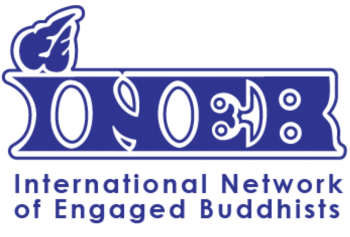
The Mindful Action: COVID-19 Emergency Relief Fund is working in cooperation with the Atish Dipankar Society (ADS) in Bangladesh; the Nagaloka Relief Fund, the Foundation of His Sacred Majesty, and the ADECOM Network, and the Buddhist Relief Fund in coordination with the Sunyatee International Foundation (SIF) in India; the Kalyana Mitta Foundation (KMF) and Phaung Daw Oo Monastic School in Myanmar; and the Nepal Buddhist Federation (NBF) in Nepal.
At the time of writing on 27 April, global confirmed SARS-CoV-2 coronavirus infections were reported to have reached 2.97 million, with 206,569 deaths so far recorded and 868,522 recovered.* The World Health Organization in March estimated the mortality rate from the virus at 3–4 per cent, based on incomplete and preliminary data, with the elderly and people with underlying health conditions considered most at risk.
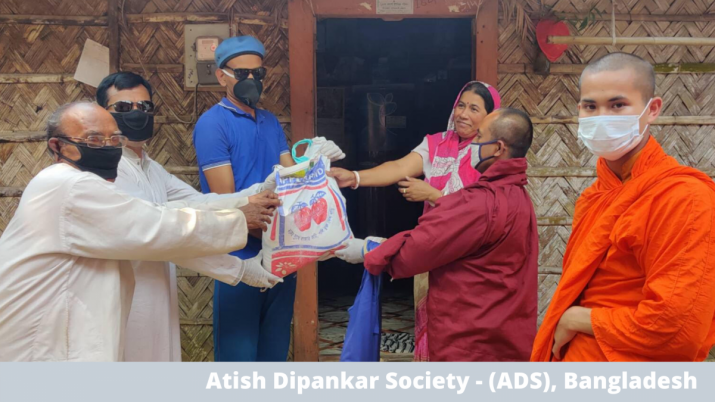 From inebnetwork.org
From inebnetwork.org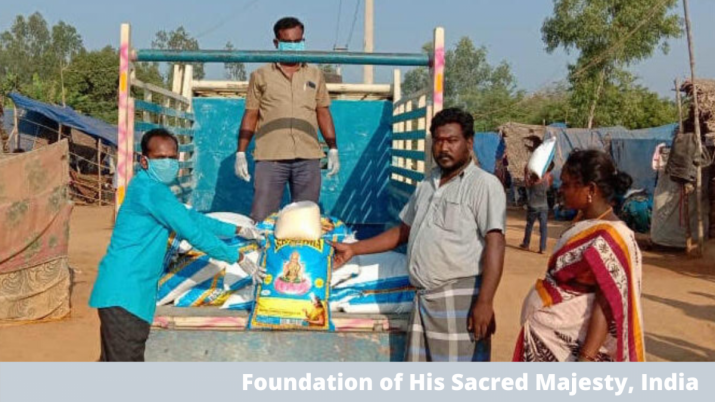 From inebnetwork.org
From inebnetwork.org“In response to the unbearable levels of suffering among the poorest and most marginalized communities in South and Southeast Asia, the International Network of Engaged Buddhists has set up a COVID-19 Emergency Relief Fund,” INEB said in a statement. “The UN World Food Programme is warning of a famine of biblical proportions as a direct result of the COVID-19 pandemic. Our network partners are already providing food and medical relief, and we know that the most critical needs will increase exponentially over the coming weeks. Our goal is to be able to increase our response to the most urgent needs for food supplies, hygiene and sanitary supplies, in addition to medicine, hospital beds, and toilets. We know this is a difficult time to ask for your support, but this is the moment when even a small contribution can save lives.” (INEB)
Bangkok-headquartered INEB has drawn up a three-part initiative, founded in the Buddhist teaching of compassion, in response to the COVID-19 crisis:
1. Forming an emergency response fund—Mindful Action: COVID-19 Emergency Response Fund—to support the most vulnerable groups in regions and countries in the INEB network, specifically in South and Southeast Asia.
2. Issuing a statement of solidarity with other religions to call for an end to responses to the pandemic that inflict suffering on vulnerable and marginalized groups, while encouraging action to provide immediate and long-term support to these groups.**
3. Developing a four-part strategic plan to realize shifts in consciousness and the building of alternative structures that create societies that can flourish and endure the sorts of dislocations that COVID-19 and environmental changes will bring to our world.
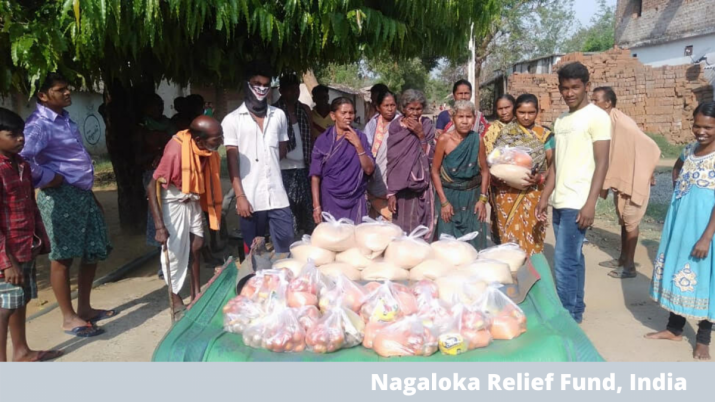 From inebnetwork.org
From inebnetwork.org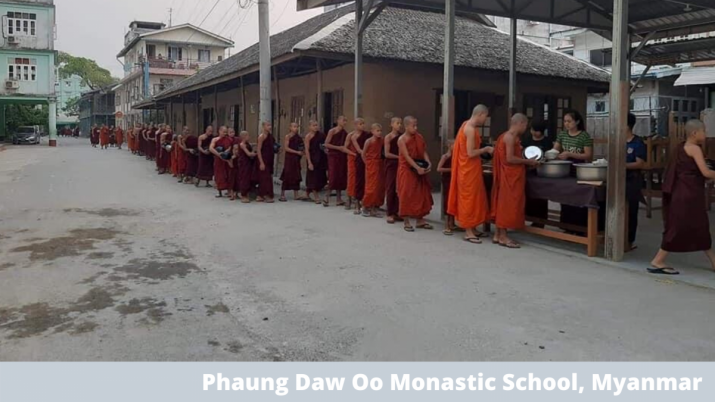 From inebnetwork.org
From inebnetwork.orgINEB was established in Thailand, in 1989 by the prominent Thai academic, activist, and social critic Sulak Sivaraksa and a group of Buddhist and non-Buddhist thinkers and social activists. It was formed with the aim of connecting engaged Buddhists around the world to promote understanding, cooperation, and networking among inter-Buddhist and inter-religious groups, and to address global issues such as human rights, conflict resolution, and environmental concerns.
Conceived as an autonomous organization under the Bangkok-based Sathirakoses-Nagapradeepa Foundation, INEB’s members include monks, nuns, activists, academics, and social workers from more than 25 countries in Asia, Australasia, Europe, and North America, working together under the umbrella of kalyaṇa-mittata.*** While a Buddhist organization, INEB welcomes members from other spiritual traditions and recognizes the importance of interfaith activities, stating: “INEB’s philosophy and practice is based on compassion, social justice, non-violence, and co-existence as put forth by Gautama the Buddha. The network’s core mission is to confront and end suffering using analysis and action guided by the Four Noble Truths.” (INEB)
“We are asking people to contribute to this relief support and share information about the Mindful Action: COVID-19 Emergency Relief Fund with your networks through social media, websites, and in meetings,” Somboon concluded.
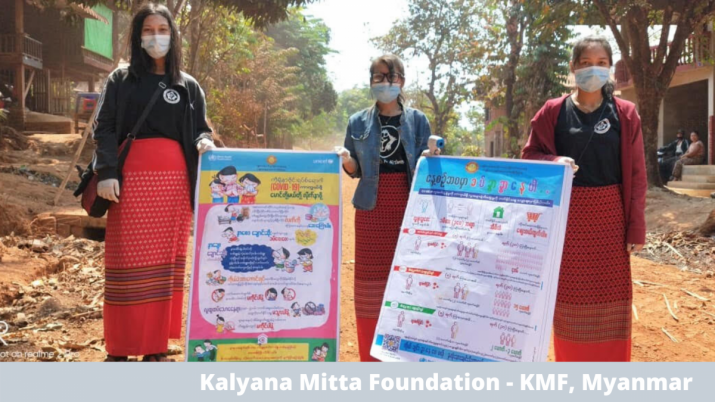 From inebnetwork.org
From inebnetwork.orgFor more information: Mindful Action: COVID-19 Emergency Relief Fund. Click here to donate
** INEB Issues Public Statement for a Compassionate Global Response to the Coronavirus Crisis (Buddhistdoor Global)
*** Kalyaṇa-mittata (Pali) kalyaṇa-mitrata (Skt.), the Buddhist concept of spiritual friendship.
See more
International Network of Engaged Buddhists
Mindful Action: COVID-19 Emergency Relief Fund, International Network of Engaged Buddhists (INEB) (INEB)
Statement Concerning the COVID-19 Pandemic from International Network of Engaged Buddhists (INEB) (INEB)
INEB - International Network of Engaged Buddhists (Facebook)
Related news from Buddhistdoor Global
COVID-19 a Lesson in “Universal Responsibility,” Dalai Lama Says on Earth Day
Buddhist teachers form “Dharma Relief” to Raise over US$500,000 in Response to Coronavirus
Prominent Burmese Buddhist Monk Donates to Pope’s COVID-19 Fund
Buddhist Compassion Relief Tzu Chi Foundation Offers Coronavirus Aid to the Vatican and Beyond
Appeal for COVID-19 Emergency Relief for Vulnerable Communities in India
Related features from Buddhistdoor Global
Buddhistdoor View: Finding Peace in the Face of Humanity’s Common Enemy
The Wisdom of Uncertainty
Let there Be Loss
See all coronavirus-related content from Buddhistdoor Global














